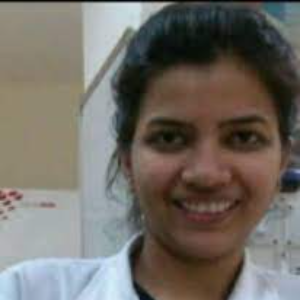Title: Study of newcastle disease virus-induced oncolytic effect in MDA-MB231 breast cancer cell line
Abstract:
Newcastle disease virus (NDV) exhibits oncolysis in its natural form. This oncolytic virus (OV) has the potential to specifically infect, propagate, and lyse cancer cells while sparing the normal cells. this study screened for oncolytic NDV strain isolated from poultry. The cytopathic effect of ten NDV strains on cancer cell lines like MDA-MB- 231, MCF-7, PC3, and A549 along with normal control cell line HEK293 was determined by MTT assay 72 hours post infection. These cell lines were infected with three doses (1, 0.1, and 0.01 MOI). Morphological changes in MDA-MB- 231 on infection with the screened NDV isolate were analyzed using H&E hematoxylin and eosin staining. The main mode of cell death triggered by velogenic NDV was identified, and also the stimulation of apoptosis inducing proteins like bax and caspase 3 along with the gene expression levels of the same were studied. Cytopathic effect of NDV isolate was examined on MDA-MB-231 breast cancer cell line by imaging flow cytometry. Bax and caspase 3 protein activity post NDV infection was quantified using sandwich ELISA. The gene expression level of both bax and caspase 3 were evaluated using qRT-PCR. The screened NDV isolate showed the maximum cytopathic effect i.e. 61.55% on MDA- MB-231 at MOI 1 but had no potent cytotoxic effect on HEK293. DNA laddering effect was observed which confirmed the mode of death to be apoptosis. All the observed morphological changes in MDA-MB-231 were typical of the cytopathogenic effects of NDV on cancer cell lines. NDV9B induced apoptosis as well as necrosis in the MDA-MB-231 cancer cells at various time interval. NDV9B elevated the bax and caspase 3 protein activity found to be maximum 1743 pg/mL and 1364 pg/mL respectively at 72 hours after infection. NDV9B infected MDA-MB231 cancer cells exhibited maximum bax gene expression at 48 hours. In case of caspase-3 gene, mRNA expression levels showed highest fold change at 72 hours post infection. In conclusion, the screened oncolytic NDV shows effective oncolysis against MDA-MB-231 cell line. These findings suggest NDV9B as a promising oncolytic virus for MDA-MB-231 cancer cells which induces cell death mainly by apoptosis.
Audience Take Away Notes :
- This study aims to screen oncolytic NDV from the poultry strains along with establishing its anticancer potential.
- This study will help in further exploration of NDV as oncolytic agent & A better understanding of NDV will enable to subdue or overcome cellular defenses in order to attain substantial viral replication within the cancer cells.
- The advent of oncolytic virotherapy will not only reform the existing standard of cancer treatment but also revolutionize tumor treatment after traditional surgery and chemotherapy.
- Wild type NDV remains unexplored for its immense potential as an oncolytic agent leading to a lack of progress in the clinical and preclinical trials.
- Wild type strain which replicates aggressively in the tumor cells, can further be genetically altered and remodeled to comply with highest degree of tumor specificity and lowest toxicity to the patient



